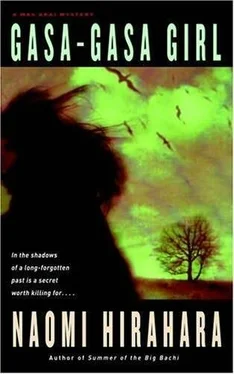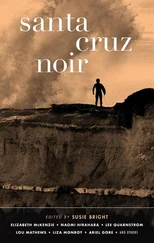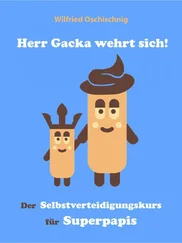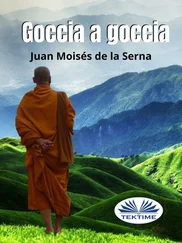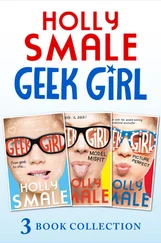“Yeah, she has some kind of meeting with Kazzy’s son.” So now Phillip was working on Miss Waxley, was he? He had said himself that he wanted to stop the garden project before it bled more money. Becca, the sea urchin, and the sumo wrestler all seemed to be on the other side. Perhaps Phillip and Miss Waxley were conspiring to recruit one of the others to vote to get rid of the garden, once and for all. “You goin’ to Mr. Ouchi’s memorial service? Right after lunch.”
Mas shook his head. He had forgotten about the service.
J-E blew out some smoke from his cigarette and looked toward the Cadillac. “I wish I could quit this gig. But can’t afford to go back to taxi driving. I have a kid and all.”
“Oh, yah?”
“Ten months old.” J-E was wearing gloves again with the fingertips cut off. He dug his right hand into his coat pocket and produced a photo of a fat baby, in an oversized football jersey, drooling on a toy football.
Mas grunted. A baby was a baby, unless it was your own. Or your daughter’s, Mas added silently.
“You know who was over here, too? Howard Foster. And those other jerks, Penn and Larry. But they already took off.”
“Oh, yah.” Mas pretended not to care.
“Yeah, Waxley Enterprises’s just across the street.”
Sure enough, on the other side of Broadway stood a tall coral-colored building with lettering in gold, Waxley Enterprises.
“Those two are assholes, man. Always telling me to take them places. They know that I’m hired by old lady Waxley. She’s the ones who pays me, and they don’t tip, neither.”
Mas stared at the gold lettering on the building across from them. “You gonna be here for a while?”
“At least an hour.”
“Do me favor,” Mas asked. “If you see a Japanese ole man with white hair wandering around, tell him Izu ova there.” Since Tug hadn’t emerged from the building, he must have gotten a meeting with Phillip.
“Sure thing, Mas.” J-E nodded, the cones on his head trembling.
***
Mas walked across the street, trying remember the sumo wrestler’s full name. Larry something. Larry Perry. Larry Ball. What the hell was it? Something with the letter P. Pauley, like UCLA’s Pauley Pavilion basketball arena.
He entered the building’s lobby, which reminded him of a deluxe funeral home’s mausoleum. Everything was dead quiet and empty, other than a coffin-shaped desk in the middle. On one side of the granite wall was a list of departments and floors. Mas took out his reading glasses and looked at the directory in the lobby for a good ten minutes. Finally the receptionist, wearing a blue blazer and a floppy striped bow tied underneath the collar of a crisp white shirt, left her coffin desk and came to Mas’s assistance. She told him that Larry Pauley was vice president of public relations on the eleventh floor. What was public relations, anyway? Well, Mas was part of the public, so perhaps Larry would make time for him.
Mas took an elevator to the eleventh floor, where another receptionist sat. Too many women sitting in comfortable chairs doing nothing, thought Mas. “Mr. Larry Pauley,” he said.
“Do you have an appointment?” she asked.
Mas shook his head. “But very important.”
The receptionist took down Mas’s name (she asked for the spelling three times) and then relayed it to someone over the phone. Like a secret password, Mas’s name opened a door. The receptionist told him to go through it to a hall to the left.
The whole office looked like a maze for rats, cubicles in the middle stuffed with people, papers, and computers. Mas knew that those in the center were the actual workers, while the ones in the outer offices were the queen bees. That’s the way it was for insects and employees, Mas figured.
Larry Pauley had a corner office that overlooked Central Park. From eleven floors above, the trees looked like dried-out shrubs ripe for a bonfire.
“Mr. Arai, to what do I owe this pleasure?” Larry spoke easily, words dripping out like oil from a leaky engine. How was it that this big shot in New York City was talking to Mas like he was an old friend?
Larry wasn’t wearing a jacket, and his shirtsleeves were rolled up to his beefy biceps. Mas noticed the edge of a tattoo on his left arm. It was one thing for Lloyd, a miserable gardener, to have a wedding ring tattoo, but quite another for a vice president of a company with two sets of receptionists to be marked on his arm muscle. Mas could smell blue-collar, and that’s where this Larry Pauley came from.
To see that Larry himself might not be as high-tone as his corner office gave Mas added strength. “Came about Takeo,” Mas explained.
“Your grandson.”
Mas nodded. “Izu afraid of all dis board thing. Don’t want my grandson to be mixed up with dis mess.”
Larry’s eyes gleamed like charcoal briquets ready for a steak barbecue.
“Is that so, Mr. Arai?”
Before Mas could respond, a thin man knocked on his half-open door. “Mr. Pauley-” he said, and then noticed Mas. “Oh, I’m sorry. I didn’t know you had a guest.” He handed Larry a Styrofoam box-lunch?-and then at least a half dozen shiny gold strips of paper. Even though Mas hadn’t seen them before in New York City, his gambling instincts kicked in. Lottery tickets.
Mas never played the lottery in California. The odds were too big. Sure, some fools told him, you’ll never win if you don’t try. But these guys tried every week and had nothing to show for it. Mas thought the poker tables were a safer bet, where you relied more on your wits to get ahead.
Larry quickly took the lottery tickets and slipped them into his top desk drawer as the male clerk left. It didn’t look good for a big shot vice president to play a fool’s game. “Please have a seat,” Larry said, extending his huge palm toward a black leather chair held together by metal bars. Larry sat behind his mahogany desk, his Styrofoam box on the desk’s top right side like a postage stamp on a letter.
Mas instead circled the office once around. He stopped at a framed oil painting of galloping horses and glanced at a collection of commemorative beer steins with various logos of racetracks from around the nation.
“Like horses?” Mas asked.
“Just a little hobby.”
Mas pointed at a beer stein decorated with purple San Gabriel Mountains, horses, the smiling face of Laffit Pincay, Jr., and the words Santa Anita Racetrack. “Have dis one at home,” he said. Mas was partial to Pincay; he had made at least five thousand dollars by betting on the jockey throughout the years.
“You’re a track man, too, Mr. Arai?” Larry’s voice went up an octave higher.
Mas nodded.
“Here, let me show this to you,” Larry called Mas over to his desk. Mas edged behind Larry’s chair and almost choked on his strong cologne. A man would only soak himself in fake scent to mask his natural bad skunk smell, Mas figured. With a clear view of Larry’s wide forehead, Mas noticed a funny scar just below his receding hairline. A result of a childhood accident or a more recent incident? Mas didn’t want to ask.
Larry took out a file from his top drawer and opened it to the centerfold. A beautiful black racehorse, its coat and muscles taut and shimmering in the sun. It had a necklace of roses tossed over its neck and a jockey at its side.
“Good-lookin’ horse,” Mas managed.
“I’m buying her next week. Her name’s Last Chance.”
Last Chance. Not much of a name, thought Mas. But maybe it had some special meaning for Larry. Mas knew that some gamblers just went for the names of horses, whichever one gave them a tingle of hope and possibility.
Larry closed the folder and Mas finally sat down in the leather chair, safely escaping Larry’s scent. “Anyway, you were talking about your grandson?” Larry said.
Читать дальше
